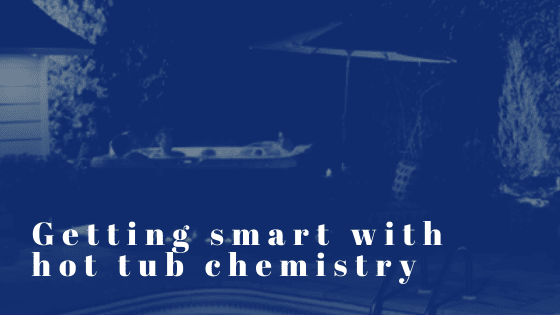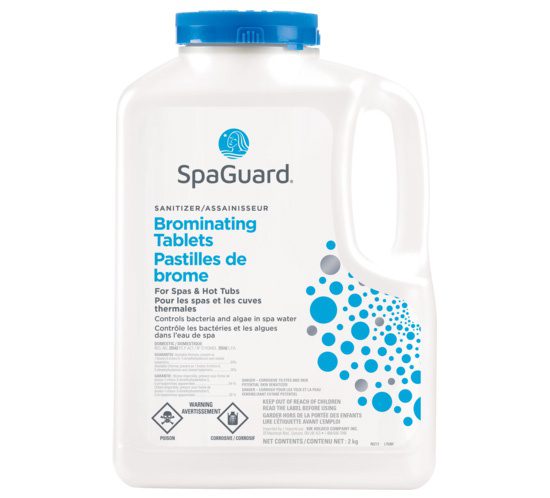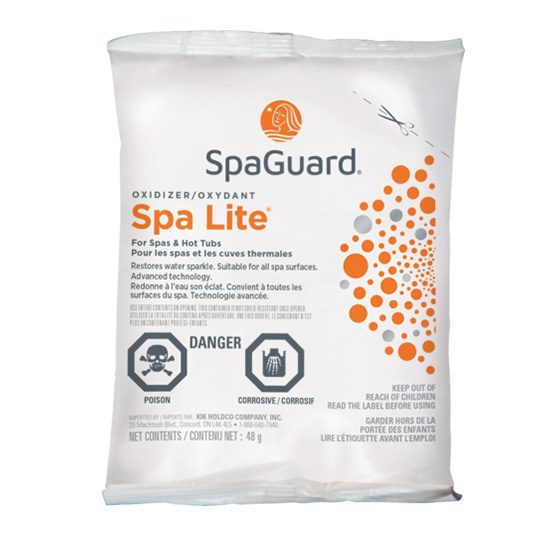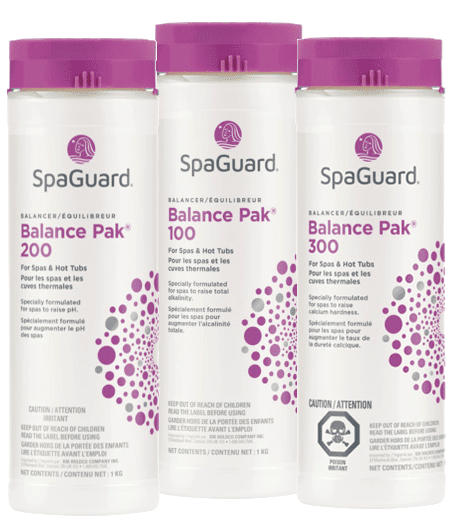Getting Smart with Hot Tub Chemistry

Are you thinking about getting a hot tub, or are you a new hot tub owner and the chemistry just seems to be overwhelming for you? A hot tub is meant to be a way of relaxing and helps to reduce stress and tension. Don’t allow it to worry you! We are going to dig into smart ways to deal with the water chemistry so you can sit and take it easy after a long hard day at work.
A hot tub (also known as a spa) is different than a pool in that the higher water temperatures provide more opportunity for bacterial growth than in a larger and cooler swimming pool. It is important to test the water in your spa frequently, and to keep it sanitized and balanced for the health of your family and friends.
Weekly chemistry:
Sanitizers are used to keep you healthy while bathing. Sanitizer levels should be kept in their ideal range of 3 – 5 ppm and should be adjusted frequently to maintain this level. Using your home test kit as a guide these should be adjusted accordingly.

Spa Shock should be used at a minimum of once per week. A shock treatment helps to reduce the contaminants in the water and eliminates odours that may be present.

pH levels should be tested and adjusted once per week, going up or down depending on the reading. The ideal range is 7.4 – 7.6.
Monthly chemistry:
Alkalinity is a pH stabilizer and helps to keep the pH from bouncing. The ideal range of the Alkalinity is 100 – 120 ppm. Having the Alkalinity off balance can cause several issues including not being able to balance your pH levels, skin and eye irritations, cloudy water or corrosion.
Calcium (also known as Hardness) is used to protect the acrylic and the equipment. If spa water does not have enough calcium, it will draw it from the equipment and cause corrosion and can cause foaming in the water. If the water has too much calcium you may find the water is cloudy and scale deposits may form. The ideal range for calcium is 150 – 200ppm.

The above chemicals are the most important ones to keep everyone safe in the tub, as well as protecting the tub itself. It is strongly recommended that if you are a new spa owner, you bring a sample of your spa / hot tub water (and the liter amounts of the spa) to your local pool and hot tub professional. The water analysers are there to help you and can further train you on hot tub chemistry – based on your specific needs. Your hot tub water should be tested by a professional when you first fill the tub, as well as on a monthly basis for optimal results.
To set up a chemical training session, you may book online using the link: https://www.rrpools.ca/services/regular-services/in-store-water-care-lessons/. Our team members are always happy to help you relax …because everyone deserves a little R&R.
